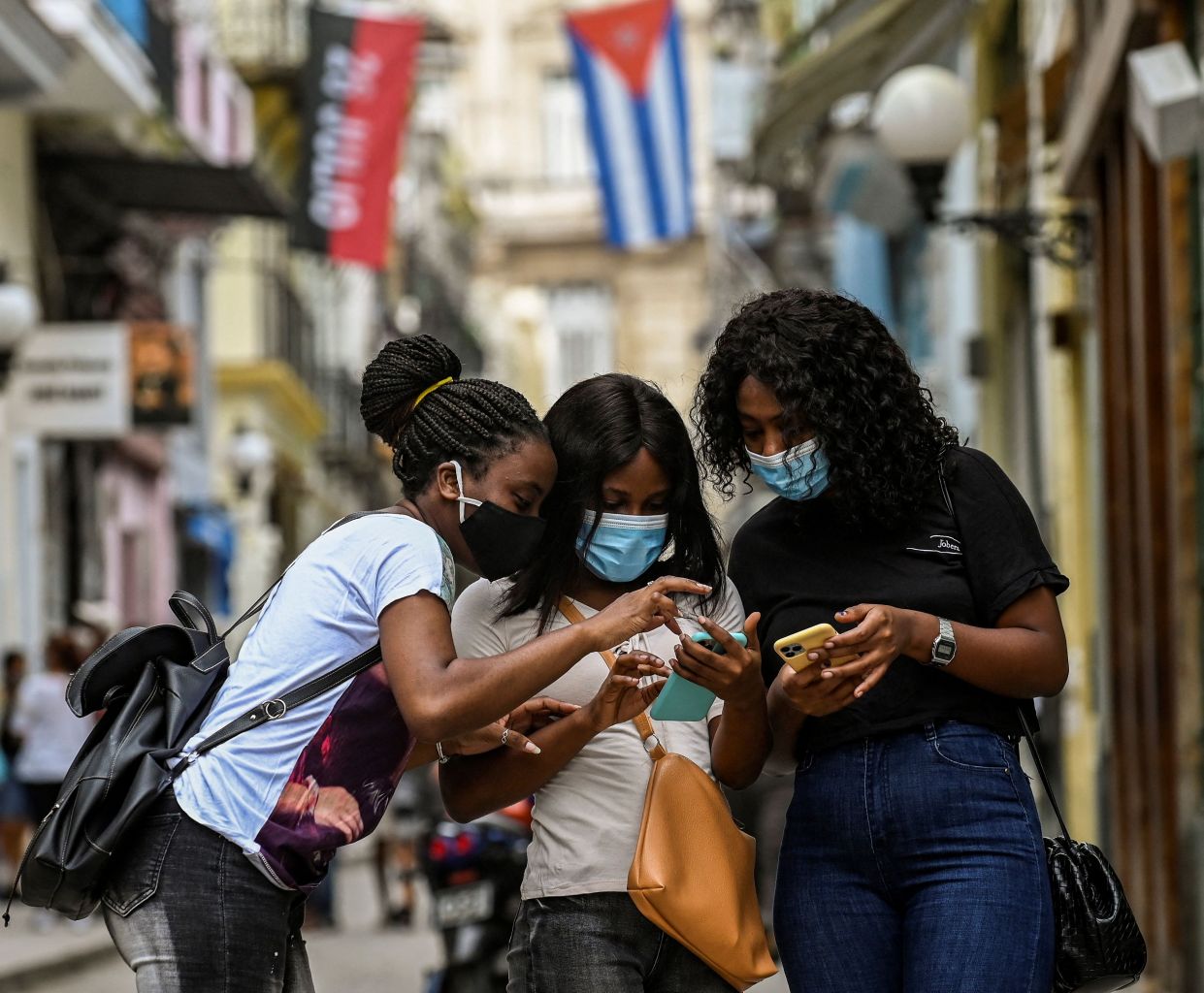Cuba restores Internet access after protests, but not social media
Sign up now: Get ST's newsletters delivered to your inbox

Women use their phones in a Havana street on July 14, 2021
PHOTO: AFP
Follow topic:
HAVANA (AFP) - Cuban authorities restored Internet access on Wednesday (July 14) following three days of interruptions after unprecedented protests erupted over the weekend, AFP journalists said.
But access to social media and messaging apps such as Facebook, WhatsApp and Twitter remained blocked on 3G and 4G.
Social media is the only way Cubans can access independent news outlets, while messaging apps are their main means of communicating among themselves.
Sunday's protests were also organised on social media, which was also used as a platform to share information.
One person has died and more than 100 were arrested, including independent journalists and opposition activists, since the anti-government protests broke out in the communist-ruled island over the worst economic crisis in decades.
"Social media is totally aggressive, calling for murders, calling for lynchings, for attacks on people and particularly those identified as revolutionaries," President Miguel Diaz-Canel said in a meeting reported by the National Television Newscast.
"This story that they're trying to compile (on social media) that the Cuban government is repressive... is a complete lie and libel," he added, calling it "media terrorism."
Cuba has blamed a half-century of US economic pressure for the economic crisis, but the downturn also comes amid strict measures against Covid-19 and a rise in cases.
Foreign Minister Bruno Rodriguez on Tuesday said the United States had incited social unrest through a Twitter campaign using the hashtag #SOSCuba.
"It's true that we don't have mobile internet, but we're also lacking medicines," Rodriguez said.
"I have to tell you, Cuba will not renounce its right to self-defence."
Web monitoring group NetBlocks reported disruptions from Monday in Cuba on major social media and communications platforms.
"The world is watching as Cuban authorities arrest and beat dozens of their own citizens, and that includes journalists and independent voices," State Department spokesman Ned Price told reporters in Washington.
"The abuse of journalists, of independent voices, the attempted suppression, including through technological means of the voice of the Cuban people, this is not something that could ever silence or quell the legitimate aspirations of the Cuban people for freedom, for human rights, for what their own government has denied them for far too long."
Streets in the capital Havana were calm on Wednesday, but there was a visibly larger security presence, particularly around the parliament building, where protesters shouting "Down with the dictatorship," "Freedom" and "We're hungry" gathered on Sunday.
New calls went out on social media on Tuesday for a protest outside the parliament building, which was surrounded by police vehicles.
NetBlocks said some Cubans have been able to get around the internet restrictions by using virtual private networks, or VPNs.

